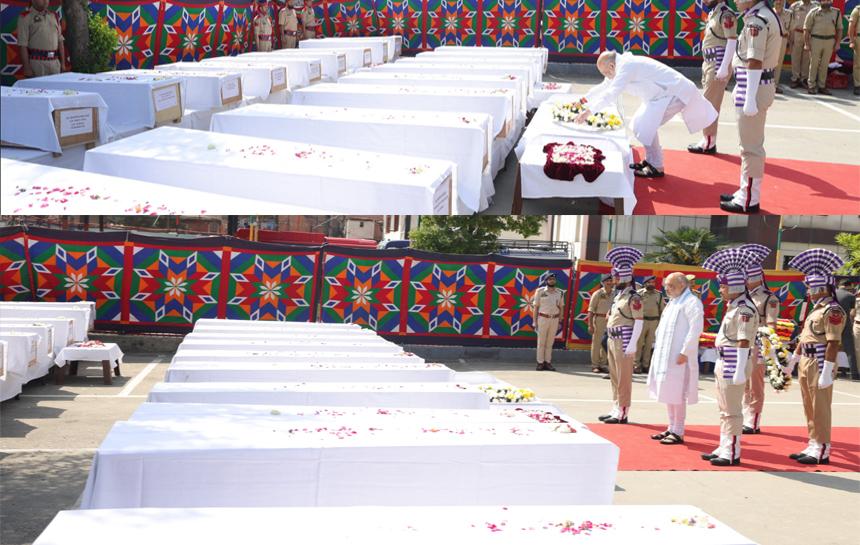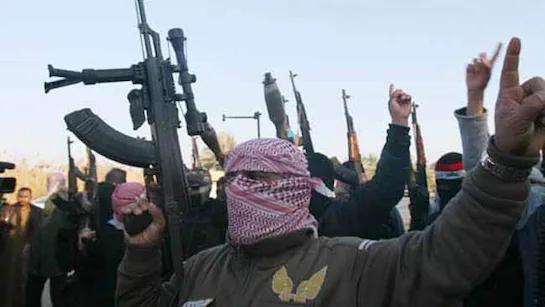The Pahalgam massacre has rekindled fears of a potential full-scale conflict between India and Pakistan, further heightening tensions in the region. Occurring on the sixth anniversary of the devastating Easter Sunday bombings in Sri Lanka, the attack targeted tourists in Pahalgam, South Kashmir, claiming 23 lives. This tragic event underscores the region’s persistent vulnerability to extremist violence.
This incident marks the second major assault on vacationers since the coordinated attacks on Catholic churches and luxury hotels in Colombo, Sri Lanka, on April 21, 2019, which resulted in over 270 deaths, including 45 foreign nationals. The United States Federal Bureau of Investigation (FBI) later confirmed that ISIS-linked terrorists were responsible for the 2019 bombings, highlighting the persistent global threat posed by jihadist networks.
Pakistan’s long-standing strategy of “bleeding India with a thousand cuts,” along with its alleged state-sponsored support for terrorism, remains an enduring challenge for India. A recent example of this strategy occurred on February 14, 2019, when a suicide bomber targeted a convoy of Indian military personnel in Pulwama, killing 40 members of the Central Reserve Police Force (CRPF). The attack was claimed by Jaish-e-Mohammed, a Pakistan-based Islamist terrorist group.
The use of terrorism as an instrument of state policy has once again come under scrutiny following recent remarks by Pakistani Army Chief General Asim Munir. On April 16, Munir reiterated Pakistan’s long-standing rhetoric on Kashmir, referring to the region as Pakistan’s “jugular vein.” Addressing a gathering of overseas Pakistanis, Munir stated, “Our stance is absolutely clear. It [Jammu and Kashmir] was our jugular vein; it will remain our jugular vein. We will not forget it. We will not leave our Kashmiri brothers in their heroic struggle.” He further added, “We are different from Hindus in every possible aspect of life.”
The term “jugular vein” has been a recurring theme in Pakistan’s strategic narrative since the 1950s, when Prime Minister Liaquat Ali Khan first used it to emphasise Kashmir’s geopolitical importance. Critics argue that such rhetoric often serves to justify state-sponsored support for extremist groups.
The timing of the Pahalgam attack—just six days after Munir’s controversial remarks—has raised significant international alarm. Some analysts have labelled it as “green light terror”. Michael Rubin, a former Pentagon official and senior fellow at the American Enterprise Institute, strongly condemned the attack and accused Pakistan’s leadership of complicity. Drawing a stark comparison, Rubin remarked, “The only difference between Osama Bin Laden and Asim Munir is that Osama Bin Laden lived in a cave, and Asim Munir lives in a palace.” He further urged the United States to formally designate Pakistan as a state sponsor of terrorism.
Adding to these suspicions, a Lashkar-e-Taiba commander reportedly declared at an event following Munir’s speech, “Jihad will continue, the guns will rage, and beheadings will persist in Kashmir.” Such statements have deepened concerns that Munir’s rhetoric may have emboldened extremist factions. The Resistance Front (TRF), widely regarded as a proxy for the Pakistan-based Lashkar-e-Taiba, has since claimed responsibility for the massacre.
Prime Minister Narendra Modi has vowed a decisive response to the Pahalgam massacre, stating, “The terrorists behind the killings, along with their backers, will get a punishment bigger than they can imagine.” This reflects India’s evolving counterterrorism strategy, which took a significant turn following the Pulwama attack in 2019. At that time, India conducted cross-border airstrikes, signalling a bold shift toward more assertive measures.
In the wake of the Pahalgam attack, India has introduced a series of robust countermeasures against Pakistan, accusing it of supporting cross-border terrorism. Among the most consequential steps is the suspension of the Indus Waters Treaty. The treaty has been a cornerstone of water-sharing agreements between the two nations since it was signed in 1960 in Karachi by then-Indian Prime Minister Jawaharlal Nehru and Pakistani President Field Marshal Ayub Khan, with the World Bank as a witness. India has placed the treaty in abeyance until Pakistan permanently ceases its support for terrorist activities.
Pakistan has categorically rejected India’s suspension of the treaty, warning that any attempt to block water flows would be regarded as an “act of war.”. Additionally, Pakistan has threatened to suspend the Simla Agreement of 1972 and has asserted its readiness to deploy the “full spectrum of national power” in response. Reports indicate that Pakistani Army troops have opened fire at multiple locations along the Line of Control (LoC) in Jammu and Kashmir, further escalating tensions.
This series of developments raises a critical question: Beyond the use of hard power, what strategic options remain for India to effectively navigate this volatile situation?




